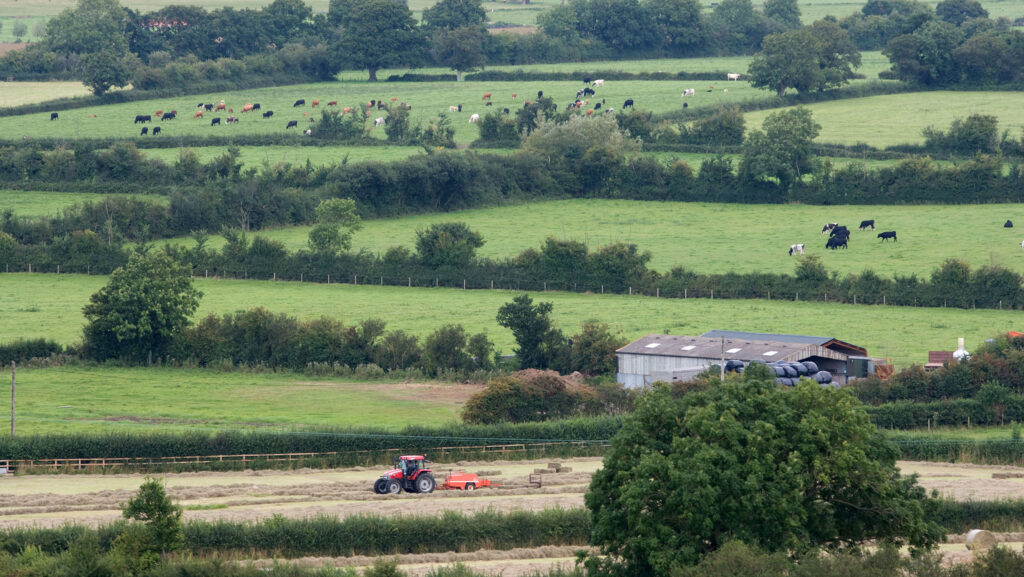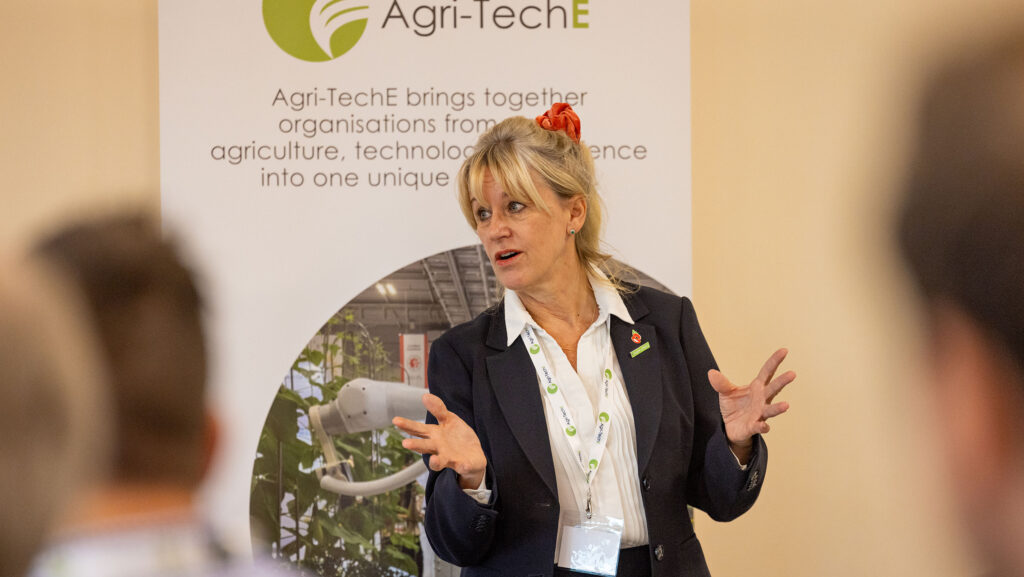Batters urges rethink on how farming fuels the economy
 © Tim Scrivener
© Tim Scrivener British agriculture’s true economic contribution is being “undervalued and misunderstood”, with urgent reform needed to reflect farming’s wider role in driving growth, jobs and food security, Baroness Minette Batters has warned.
Speaking publicly for the first time about her upcoming farm profitability review, the former NFU president said her findings call for a recalculation of agriculture’s GDP value to capture its full contribution – from food production to tourism and the wider rural economy.
At the Agri-TechE REAP Conference in Peterborough, Baroness Batters said UK agriculture’s official 0.6% GDP valuation “was a gross underestimate” that led Whitehall to dismiss the sector.
See also: Minette Batters to lead Defra farm profitability review
“It [farming] couldn’t matter less was a phrase used to me from Whitehall, when I was president of the NFU,” she said.

Baroness Batters speaking at the event © Agri-TechE
Baroness Batters said agriculture must be properly valued in economic terms and recommended that the secretary of state work with the Office for National Statistics to recalculate agriculture’s GDP contribution, including both primary production and processing.
She told ministers the sector should aim to generate 10% of GDP within a decade, though “whether that is achievable will depend on the government of the day”.
Her six-month review, submitted to Defra secretary Emma Reynolds on 31 October, contains more than 50 recommendations to “right what I believe have been a number of wrongs since the [Brexit] referendum”.
Profit shortfall
Baroness Batters revealed she had stripped out diversified income to show the true dynamics of farm profitability.
Using Defra survey data and Strutt & Parker analysis, it found the average 140ha farm needs about £34,000 a year, or £250/ha, to match median household earnings.
“Strutt & Parker reckons that 50% of farm businesses fall below that, so if we don’t change things, there will be a very different industry,” she said.
Immediate gains, she added, could come from simpler planning rules, tackling labour shortages in horticulture, and using tax and grant incentives to boost on-farm investment.
Her review also warns that research and innovation in UK agriculture are “too fragmented to be effective”, calling for closer collaboration between the AHDB, the Institute for Agriculture and Horticulture and the Agri-Tech Centres.
Baroness Batters confirmed she had raised the inheritance tax issue with ministers, but did not specify to what extent this was covered in her review.
In conclusion, she said her review sets out “a farming roadmap that can be measured in six, 12, and 24 months’ time. A plan to grow more, create more, sell more and keep more money in the British economy”.
Sector engagement
In an interview with Farmers Weekly, Baroness Batters was asked if the government had given her “the freedom” to write the report she wanted.
“I think they have. I have written the report that I wanted to write,” she said. “That’s not to say that there haven’t been challenges to me and an enormous need to justify.
“I’ve done the engagement that I wanted to do and was really engaged with the whole industry. I had over 400 asks submitted, and I didn’t disagree with any of the asks, but they were coming from different places.”
Baroness Batters said the big challenge is the implementation and handover of the report.
She warned it must not be left “to sit on a shelf and do absolutely nothing,” stressing that KPIs need to be set and progress reviewed.
“I want to see everything in here enacted within a two-year period. That’s going to really force them to work fast.”
Defra said the farm profitability review will be published in mid- to late-November.
